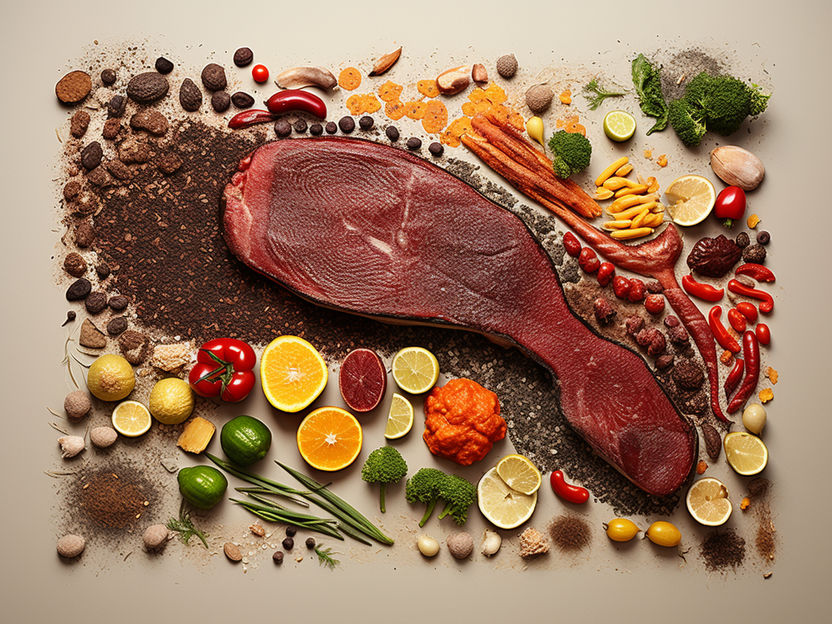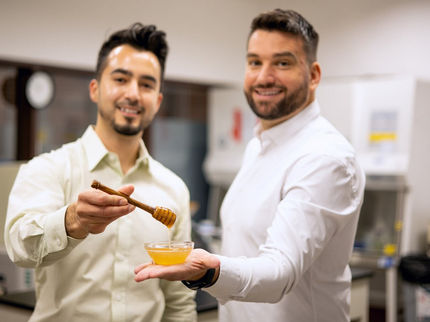Food is primary driver of the EU-27’s outsized Ecological Footprint
Advertisement
One quarter of food consumed in the EU-27 originates from outside the region, highlighting the vulnerability of the EU’s food system.

symbolic picture
computer generated picture
New research coordinated by Global Footprint Network’s sustainability scientists in collaboration with food system experts published the article “EU-27 Ecological Footprint was primarily driven by food consumption and exceeded regional biocapacity from 2004 to 2014” today in Nature Food. The way food is provided to and consumed by Europeans represents the largest share of their Ecological Footprint at around 30 percent. The study points to the need for designing, implementing and enforcing policies across each stage of the food supply chain to advance towards the EU Green Deal and Farm to Fork strategy.
From farm to fork, food systems generate many pressures on ecosystems including land use and land use change, water depletion and pollution, biodiversity loss, and greenhouse gas emissions. “People in Europe are eating beyond their means in terms of imports, carbon emissions, and land and water use,” explains article author Professor Roberta Sonnino, Centre for Environment and Sustainability and Fellow of the Institute for Sustainability at the University of Surrey. “The tendency to intervene either on the supply or on the demand side isn’t working. Rather, we need a systemic approach to address them together, as well as looking at trade policies. Instead of taking a scattergun approach, national governments must implement holistic food policies based on evidence – the sort of evidence contained within this research,” Sonnino affirms.
Humanity’s demand for biological resources and ecosystem services far exceeds the planet’s capacity to regenerate biological resources and sequester carbon dioxide emissions, as shown by the progression of Earth Overshoot Day. Similarly, and for the data analysed in the study, the Ecological Footprint of EU-27 residents constantly exceeded the region’s biocapacity and depended upon resources from outside the region to meet EU lifestyle demands.
“The EU Green Deal and the Farm to Fork strategy position the EU as a global leader in the transition towards more sustainable food systems and societies. However, as nearly 25 percent of the biocapacity needed to support the diets of EU-27 residents originates from non-EU countries, our analysis suggests that solely applying Farm to Fork objectives to the domestic agricultural sector will not be sufficient to meet the EU decarbonization targets and instead shifts environmental impacts to non-EU countries,” states lead author and coordinator of the research Alessandro Galli, Ph.D., Director for Mediterranean and MENA Regions, Global Footprint Network.
“Supply-side changes alone are likely insufficient to make the EU-27 food system sustainable in the terms described by the Farm to Fork Strategy. Including both nutritional and sustainability perspectives into national food-based dietary guidelines, changes in food consumption and behaviour trends can be triggered for the benefit of both planetary and human health,” elucidates author Marta Antonelli, Ph.D., Food Systems Project Lead, Global Footprint Network.
Original publication
Alessandro Galli, Marta Antonelli, Leopold Wambersie, Anna Bach-Faig, Fabio Bartolini, Dario Caro, Katsunori Iha, David Lin, Maria Serena Mancini, Roberta Sonnino, Davy Vanham, Mathis Wackernagel; "EU-27 ecological footprint was primarily driven by food consumption and exceeded regional biocapacity from 2004 to 2014"; Nature Food, 2023-9-14




























































